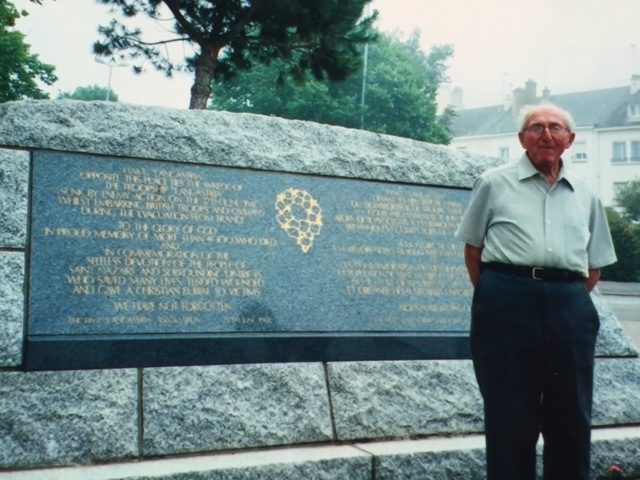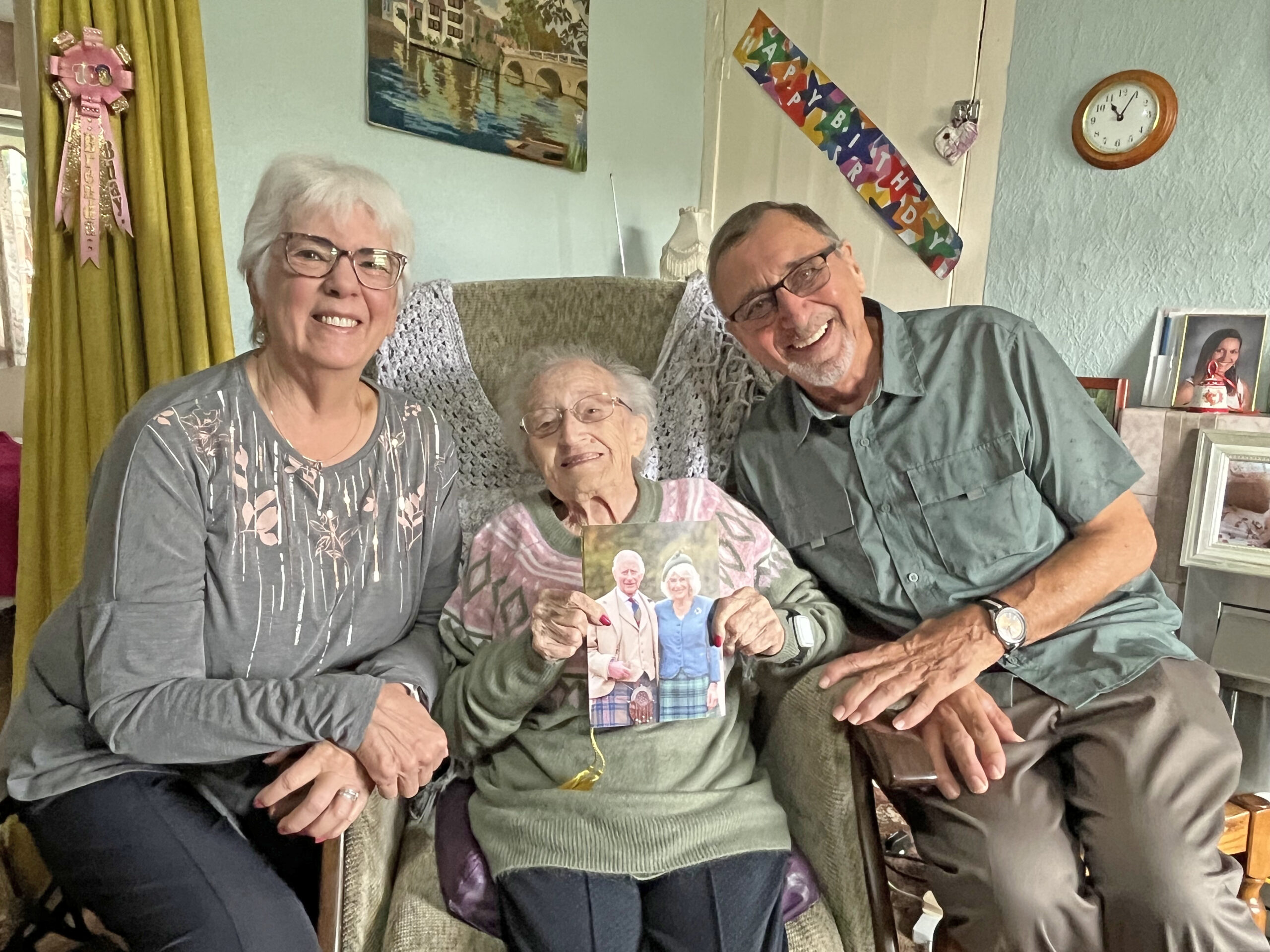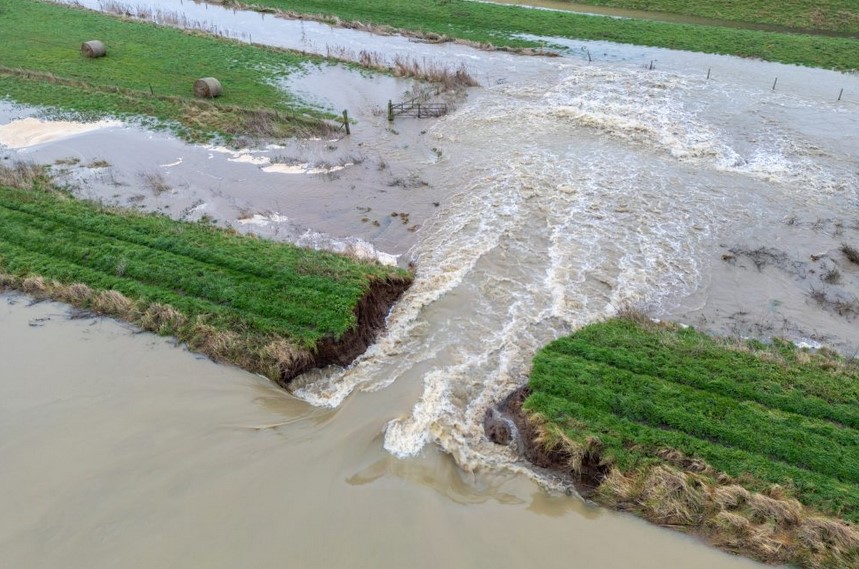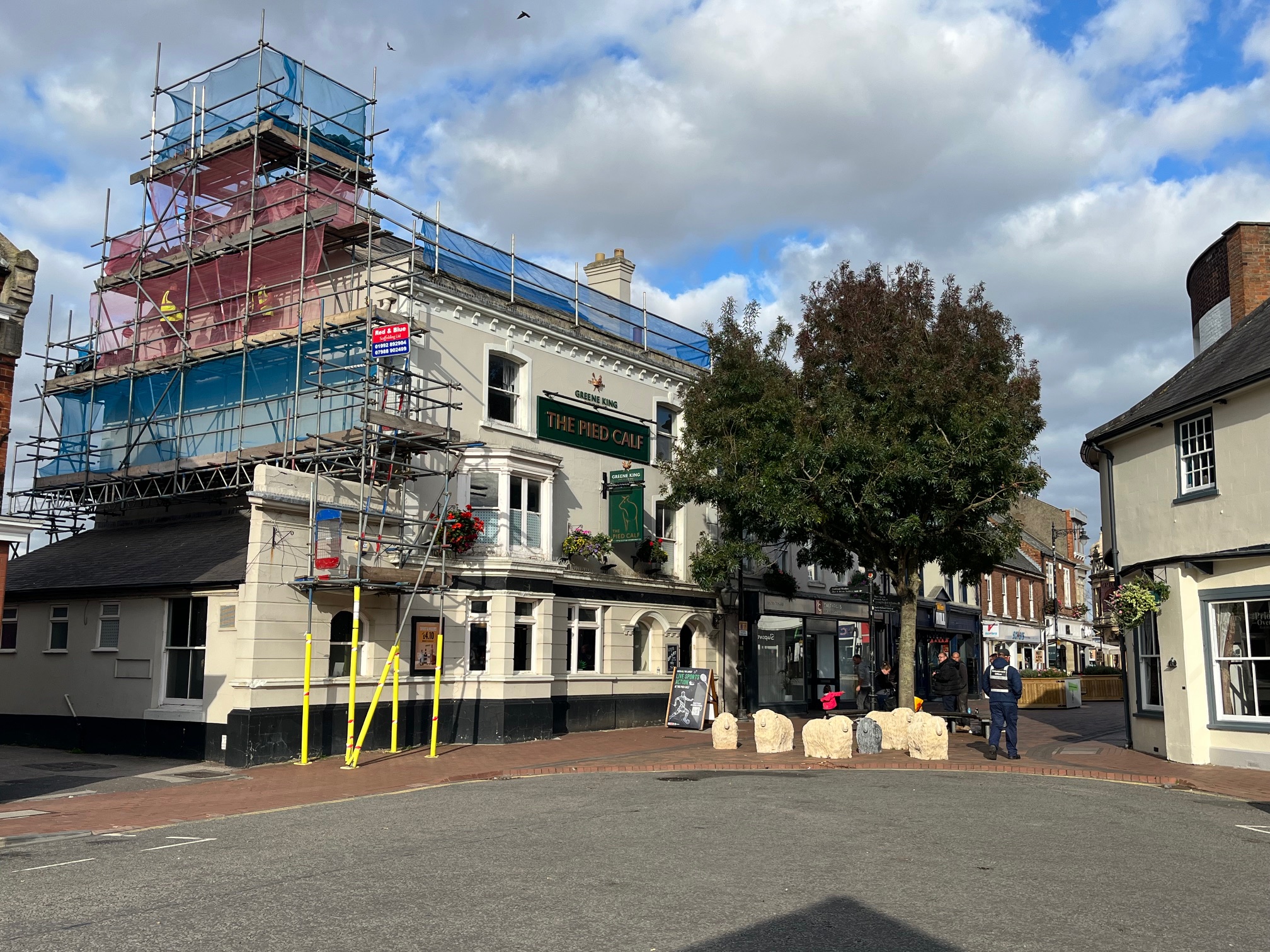June 17 1940. Does that date mean anything to you? It most certainly does to me, writes Jane Webb, of Gedney.
The beginning of June 1940 to most people brings to mind Dunkirk, when British soldiers were evacuated from France in an armada of small ships.
At the time Winston Churchill told the British people that the British Army had been repatriated – not strictly true.
Thousands of soldiers and airmen were stranded in France with an advancing German army snapping at their heels.
One of those soldiers was my father, Alec Cuthbert. He, and his detachment, along with thousands of others eventually found themselves in St Nazaire, a port just west of Nantes, in the Bay of Biscay.
Father was in the Engineers, REME, and as more and more refugees arrived in St Nazaire, their job was to immobilise all vehicles to prevent them being used by the German Army.
On the morning of June 17, 1940, Alec along with others including his friend, Harry Pack, were sitting on the dock in St Nazaire harbour watching as hundreds of troops were ferried out to a requisitioned cruise liner called HMT Lancastria.
Alec and Harry were concerned that when it was their turn there would be no room on the ship. Finally they too were ferried out to the Lancastria.
They were some of the last to board before the anchor was raised and they began to inch away from France.
As they set sail, Harry went to fetch them both a beer.
Men, women and children had been packed into every available space in the ship. No-one knows how many were on board but it could have been up to 10,000.
Alec and Harry were on the top deck having been last to board. They hadn’t been under way for many minutes when the Germans bombed the Lancastria. The ship immediately began to sink.
My father told me he remembered sitting on the side of the deck and taking off his boots because he knew they would drag him under the water. He told me that he slid into the water just as the ship sank. I understand it only took about 20 minutes.
For many years he kept the watch he was wearing which stopped when he hit the water – 3.20pm.
I will always remember him telling me that those in the lower decks didn’t stand a chance, only the lucky few on the top decks managed to escape from the ship.
Once in the water, Alec managed to grab hold of a lifebuoy but then came across another chap who couldn’t swim so they shared the buoy and Father helped to keep him afloat.
The German planes returned and machine-gunned the water and dropped incendiary devices in an attempt to set fire to the oil and diesel coming from the stricken vessel.
Father could never remember exactly how long he was awaiting rescue but thought he was in the water for about four hours.
Several boats came to their aid, other troop ships evacuating personnel back home and French fishing vessels who had seen the tragedy unfold.
Father was eventually taken on board a vessel which had also suffered damage in the raid but they were able to limp back to England on reduced power.
All those rescued from the water were unrecognizable as they were smothered in oil. Father told me it took days to get rid of the taste in his mouth.
It was many years later that Father finally tasted a beer from Harry who also survived and lived in Peterborough.
I was born after the war but I was in my teens before Father mentioned any of this to me.
Subsequently our family has been fortunate enough to make several pilgrimages with Father back to France to commemorate the events of June 17, 1940.
The French always mark the anniversary with a service at the Lancastria Memorial on the seafront. We have been privileged to have been taken out to the site of the wreck, some five miles off shore, and had the opportunity to lay wreaths over the wreck.
Whilst in St Nazaire we, as a family, have also visited the numerous war grave sites around St Nazaire. The local people, some donating land for the cemeteries, ensured all those who were found were buried.
It is incredibly moving to see row upon row of gravestones all bearing the same date – June 17, 1940.
A few years ago, I was telling this story to a war veteran in Lincoln. A retired RAF gentleman overheard the conversation and asked if I knew about the link between the Lancastria and RAF Digby, an air force base just south of Lincoln.
He then went on to explain that during the war RAF Digby was home to a Spitfire Squadron.
During June 1940 these Spitfires, based in France, flew home but all the ground crew from RAF Digby were marooned in France.
They were some of the first to board the Lancastria and they were on the lower decks. Not a single man survived.
As a result, this squadron could not operate out of Digby until more ground crew had been trained.
There is now a small museum/display at RAF Digby to commemorate these events.
There will probably be quite a bit of press coverage of the 80th anniversary of Dunkirk but I doubt there will be any recognition of the 80th anniversary of the sinking of HMT Lancastria.
The greatest single loss of life in the Second World War, far greater than the Titanic and Lusitania together, though in a later generation.
At the time of the tragedy Winston Churchill put a 100 year embargo on the story because he felt the British people could not face any more bad news.
Surely now, 80 years on, the events of this day should be heard.







